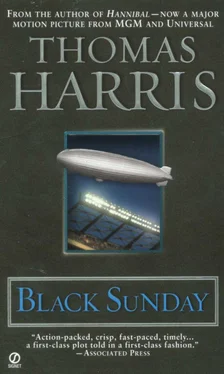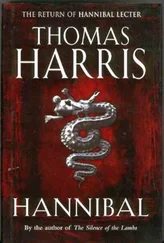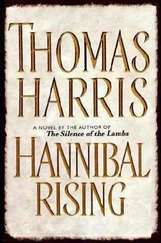Fasil might be cosmopolitan in his manners and radical in his politics, but Dahlia could tell that in the send and ebb of his emotions he was not greatly removed from the time of his grandfather, the time of female circumcision, clitoridedomy, and infibulation, the bloody rites which ensured that female children would not bring dishonor on their houses. She always detected a faint sneer in his voice when he called her “comrade.”
“Dahlia.” Lander’s voice shifted her attention back to him. The change did not register in her face at all. It was a trick she had. “Hand me the needle-nosed pliers.” His voice was calm, his hands steady. Good omens for what might be a difficult day. She was determined there would be no wasteful squabbling. Dahlia had confidence in Fasil’s basic intelligence and dedication, if not in his attitude. She had confidence in the strength of her own will. She believed in the genuine understanding and affection she shared with Lander, and she believed in the fifty milligrams of chlorpromazine she had dissolved in his coffee.
KABAKOV STRUGGLED BACK TO CONSCIOUSNESSlike a desperate diver thrashing upward to the air. He felt the fire in his chest and tried to raise his hands to his burning throat, but his wrists were held with a grip like padded iron. He realized that he was in a hospital. He felt the rough-dried hospital sheet under him and felt the loom of someone standing beside the bed. He did not want to open his smarting eyes. His body was seized by his will. He would relax. He would not struggle and bleed. It was not the first time he had regained consciousness in a hospital.
Moshevsky, towering over the bed, relaxed his grip on Kabakov’s wrists and turned to an orderly at the door of the room. He used his softest growl. “He’s coming around. Tell the doctor to get in here. Move!”
Kabakov opened and shut one hand, then the other. He moved his right leg, then his left. Moshevsky nearly smiled with relief. He knew what Kabakov was doing. He was taking inventory. Moshevsky had done it himself on several occasions.
Minutes passed as Kabakov drifted back and forth between the darkness and the hospital room. Moshevsky, swearing softly, had started for the door when the doctor came in with a nurse following him. The doctor was a slight young man with sideburns.
He glanced at the chart while the nurse opened the oxygen tent and peeled back the top sheet, suspended tentlike on a metal frame to keep it from touching the patient. The doctor shined a penlight into each of Kabakov’s eyes. The eyes were red and tears welled out when he opened them. The nurse administered eyedrops and shook down a thermometer while the doctor listened to Kabakov’s breathing.
The skin quivered under the cold stethoscope and the doctor was inconvenienced by the tape covering the left side of the rib cage. The emergency room had done a neat job. The doctor looked with some professional curiosity at the old scars that dotted and seamed Kabakov’s body. “Do you mind standing out of the light?” he said to Moshevsky.
Moshevsky shifted from one foot to the other. Finally, in a position that resembled parade rest, he stared fixedly out the window until the examination was completed. He followed the doctor outside.
Sam Corley was waiting in the hall. “Well?”
The young doctor raised his eyebrows and looked annoyed. “Oh, yes. You’re the FBI.” He might have been identifying a plant. “He has a mild concussion. The X-rays look good. Three fractured ribs. Second-degree burns on the left thigh. Smoke inhalation has him very raw in the throat and lungs. He’s got a ruptured sinus that may require a drain. An ENT man will be in this afternoon. His eyes and ears appear to be okay, but I expect his ears are ringing. It’s not unusual.”
“The hospital administrator spoke to you about listing him as very critical?”
“The administrator can list him any way he pleases. I would call his condition fair or even good. He has a remarkably tough body, but he’s battered it around a lot.”
“But you‘ll—”
“Mr. Corley, the administrator can tell the public he’s pregnant for all I care. I won’t contradict him. How did this happen, or may I ask?”
“I think a stove exploded.”
“Yes, I’m sure it did.” The doctor snorted through his nose and walked off down the hall.
“What’s an ENT man?” Moshevsky asked Corley.
“An ear, nose, and throat specialist. By the way, I thought you didn’t speak English.”
“Poorly, if at all,” Moshevsky said, hurriedly reentering the room with Corley staring balefully at his back.
Kabakov slept through most of the afternoon. As his sedative wore off, his eyes began to twitch beneath the lids and he dreamed, the colors in his dreams drug-bright. He was in his apartment in Tel Aviv and the red telephone was ringing. He could not reach it. He was entangled in a pile of clothing on the floor, and the clothing stank of cordite.
Kabakov’s hands clutched the hospital sheet. Moshevsky heard the cloth rip and came out of his chair with the speed of a Cape buffalo. He unclenched Kabakov’s fists and put them back at his sides, relieved to see that only the sheet was torn and not the bandage.
Kabakov woke remembering. The events at Muzi’s house did not come back to him in order, and it was maddening to have to rearrange the pieces as he recalled them. By nightfall the oxygen tent had been removed and the ringing in his ears had subsided enough for him to listen while Moshevsky filled him in on the aftermath of the explosion—the ambulance, the cameramen, the press temporarily deceived but suspicious.
And Kabakov had no trouble hearing Corley when he was admitted to the room.
“What about Muzi?” Corley was pale with anger.
Kabakov did not want to talk. Talking made him cough and coughing aggravated the fire in his chest. He nodded to Moshevsky. “Tell him,” he croaked.
Moshevsky’s accent showed marked improvement. “Muzi was an importer—”
“Jesus Christ, I know all that. I’ve got the paper on him. Tell me what you saw and heard.”
Moshevsky cut his eyes toward Kabakov and received a slight nod. He began with the questioning of Fawzi, the discovery of the Madonna, and the examination of the ship’s papers. Kabakov filled in the scene in Muzi’s apartment. When they had finished, Corley picked up Kabakov’s bedside telephone and issued a rapid series of orders—warrants for the Leticia and crew, a lab team for the ship. Kabakov interrupted him once.
“Tell them to abuse Fawzi in front of the crew.”
“What?” Corley’s hand was over the mouthpiece.
“Say he’s being arrested for not cooperating. Shove him around a little. I owe him a favor. He has relatives in Beirut.”
“It’s our ass if he complains.”
“He won’t.”
Corley turned back to the telephone and continued his instructions for several minutes. “… yeah, Pearson, and call Fawzi a—”
“Pig-eating crotch cannibal,” prompted Moshevsky.
“… yeah, that’s what I said call him,” Corley said finally. “When you advise him of his rights, yeah. Don’t ask questions, Pearson. Just do it.” He hung up the receiver.
“Okay, Kabakov. You were dragged out of that house by two guys with golf bags who just happened to be passing by, the fire department’s report says. Some golfers.” Corley stood in the middle of the room in his rumpled suit, flipping his keys. “These fellows just happened to leave the scene in a panel truck as soon as the ambulance arrived. What was the truck—a shuttle to some golf club where everybody talks funny? I quote to you from the police ‘aided card’: ‘They both talked funny.’ Like you talk funny. What are you running here, Kabakov? Are you gonna shit me or what?”
Читать дальше












